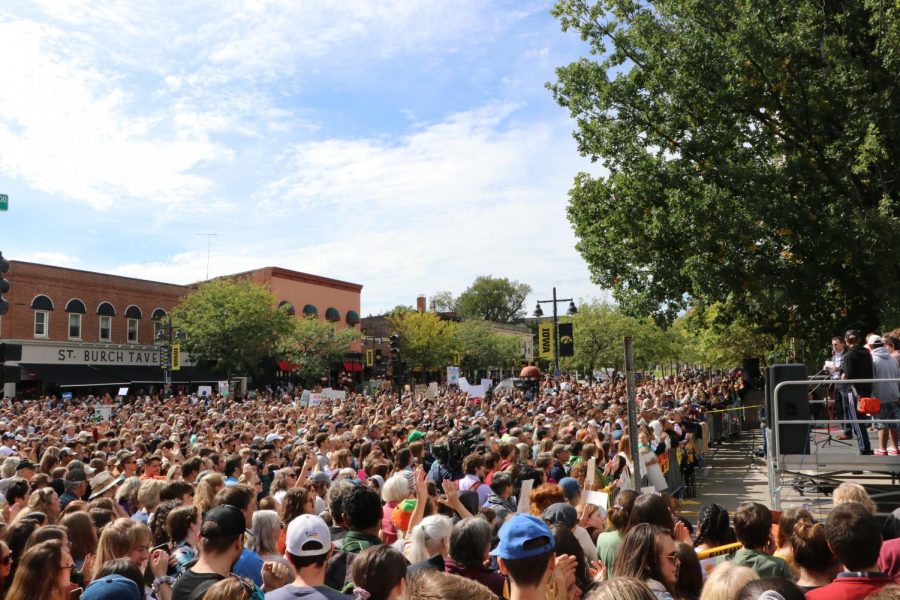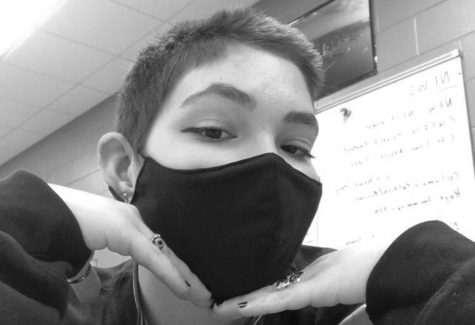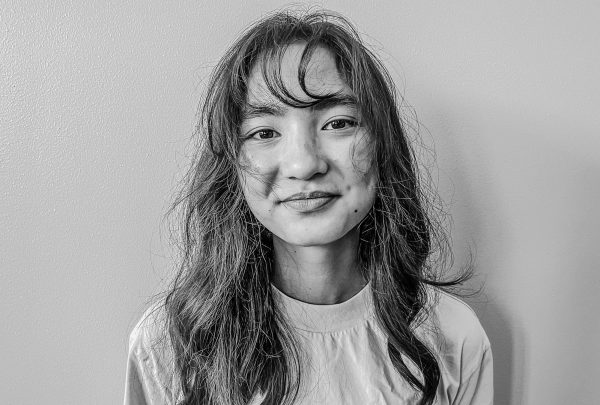Climate Strikers One Year Later
Greta Thunberg came to Iowa City in October and over 3,000 gathered to hear her and the other Iowa City climate strikers speak
April 4, 2020
Sitting in class, Alex Howe ‘23, Massimo Biggers ‘23, and Ian Martinez ’23 carefully watched the clock, waiting for the time to come. Walking out of South East Junior High for the first time was scary. Teachers and students’ heads turned as the then-eighth graders stood outdoors, signs in hand, and protested for action to be taken on climate change.
“[The first strike] was kind of strange because when we were striking, a lot of people would come by and ask us why we were doing this, [and say] that I should be in class, I should be doing something more productive,” Martinez said. “And we didn’t listen to them.”
Howe was nervous going into it because he didn’t know how the teachers would respond but felt sure that the strikers were making the right choice.
“At the very first climate strike, everyone was really nervous because we didn’t know how it would go, we didn’t know if kids were going to come outside, we didn’t know if people would just come out to skip school or if the teachers would come outside,” Howe said. “And honestly, there was a lot of support from the teachers. I mean, there was some negativity [from] teachers. It was mostly good.”
When the climate strikes were just starting up, support could be hard to come by.
“Well, [my family] used to not think it was a waste of time,” Martinez said. “But now that I’ve gotten attention from other people, they started to pick it up more like, ‘Oh yeah, this is a good thing; you should keep doing this.’”
Biggers’ favorite part of the experience was the strikes themselves, especially when he was striking alone.
“There was a day where I was striking at the school board, and I was just alone for four hours,” Biggers said. “[It was] just quiet, very quiet. I was reading a book for four hours. I had two signs right next to me. I [was] just sitting there. I think it really showed that we were persistent, that we weren’t stopping at all. Even if it was one person, we were always there.”
Organizing the strikes, which usually took place at the Iowa City Community School District’s office, has been relatively simple for the climate strikers.
“There haven’t really been any stressful climate strikes at all,” Biggers said. “It’s just kind of like, we get together, we speak, and we have fun.”
They decided to start striking after Greta Thunburg, a Swedish environmental activist, started a movement called “Fridays for Future.” Starting in August 2018, Thunberg sat outside of the Swedish parliament instead of going to school to call for political action to be taken to combat climate change. On October 4, 2019, Thunberg joined the Iowa City Climate Strikers in a strike that had over 3,000 people attend.
After finding out that Thunberg was coming to an Iowa City climate strike, Howe excitedly told his mom. Martinez didn’t immediately tell his parents and told a couple of his friends who had been supportive of the climate strikes from the beginning.
“[The atmosphere of the strike] was surreal. I couldn’t have imagined [it],” Howe said. “I think it was six months into the climate strikes and I just couldn’t believe that she was there because she was the inspiration for it. I couldn’t see myself there six months ago and then I was there.”
After the Iowa City climate strikers were noticed by Thunberg, Martinez felt like his voice was being heard loudly after months of striking.
“I finally felt listened to by other people in the community, after someone that’s known as a striker, I’m not gonna call her a celebrity but kind of a celebrity, who’s out there, more people start to listen to you since you got noticed by that certain person,” Martinez said.
Roughly one year after the climate strikes started, the climate strikers are calling for Iowa City and the University of Iowa to achieve 100 percent renewable energy by 2030. They also want the university to stop burning coal at its coal plant.
Looking into the future, Biggers, Howe, and Martinez all want to see changes in the Iowa City and City High community.
“I’d like to see more people take it seriously and stop joking about the climate because it’s a serious issue,” Howe said. “If we don’t handle it, there won’t be a future for humans or anything. In the future, I’d like to see our carbon emissions reduced to zero, even if I’m not alive for it, and all clean energy.”
The climate strikers would like to see more people join in on the Friday strikes to advocate for statewide political action to be taken.
“We’re trying to take on the governor now and we just need people to join,” Biggers said. “More people would be awesome.”

































